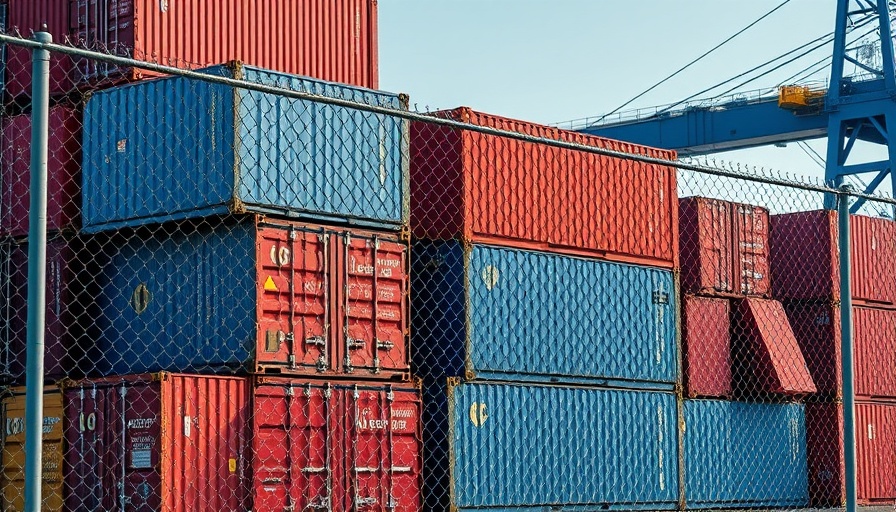
Understanding Tariffs: A Call for Stability in Trade
As we gear up for an uncertain economic future, the nuances of international trade policies, specifically tariffs, remain a hot topic in Washington State. Recent discussions have shed light on critical aspects affecting local agriculture businesses, especially fruit growers whose livelihoods depend on export strength. The implications of tariffs loomed large when President Trump hinted at imposing broad tariffs on imports. Such measures sent shockwaves through the trade sector, raising concerns about the negative fallout on Washington's agriculture industry.
Lessons from Past Tariff Impacts
The landscape of Washington's agricultural exports offers a cautionary tale as we navigate the threat of renewed tariffs. During Trump's first administration, U.S. tariffs led to retaliatory actions from trading partners, culminating in substantial losses for Washington farmers. A concrete example is the state’s once-thriving apple market in India, where exports plummeted from $120 million in 2019 to under $3 million by 2022 due to imposed tariffs and their repercussions. Former Governor Jay Inslee's comments remind us of the wealth of resources Washington possesses and emphasize the need in reopening paths for international commerce rather than closing them off.
A Bipartisan Response to Tariff Threats
In response to the tariff announcement, Washington’s congressional delegation swiftly mobilized to counter the potential economic harm. Senator Maria Cantwell, alongside a bipartisan cohort, introduced legislation aimed at curbing future unilateral tariff implementation. Their proactive approach underscores a shared understanding among lawmakers about the risks tariffs pose—not only to agricultural exports but also to the broader state economy. The collective effort signifies an essential step; it is vital to preserve relationships with international trading partners, especially when states like Washington rely heavily on exports.
Future Insights: Navigating Economic Uncertainty
Looking ahead, Washington agriculture may find itself at the brink of a crucial transformation. While some economic analysts question the effectiveness of tariffs in reshaping manufacturing practices in the U.S., the stakes for farmers are immensely high. Experts like Debra Glassman express skepticism, raising critical inquiries about the overall economic strategy behind such tariffs.
The potential consequences of trade disputes reaching a boiling point can unsettle not only producers but also consumers and the economy at large. Instead of enhancing manufacturing, a retaliatory approach could simply inflate consumer prices and disrupt supply chains, affecting everyone from small farmers to urban shoppers in Seattle.
Empowering Local Farmers Through Awareness
For residents of Seattle invested in supporting their local economy and agriculture, understanding the dynamics of tariffs is crucial. Engage in community discussions; consider how you can impact the narrative around local products and fair trade practices. Directly supporting Washington’s agriculture can empower farmers, fostering resilience against the tide of economic uncertainty shaped by policy changes.
Ultimately, stalls or setbacks in trade can ripple across the food system, illuminating the importance of informed, engaged consumers who advocate for policies that favor sustainable economic growth.
As we navigate these complex waters, staying informed and involved in discussions about trade policy can help ensure a brighter future for our agriculture and community. Let's unite in championing local farmers and advocating for a sustainable and prosperous agricultural economy.
 Add Row
Add Row  Add
Add 




Write A Comment